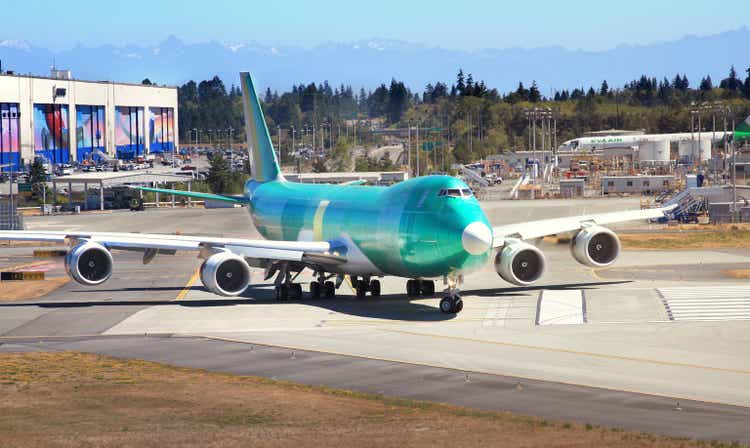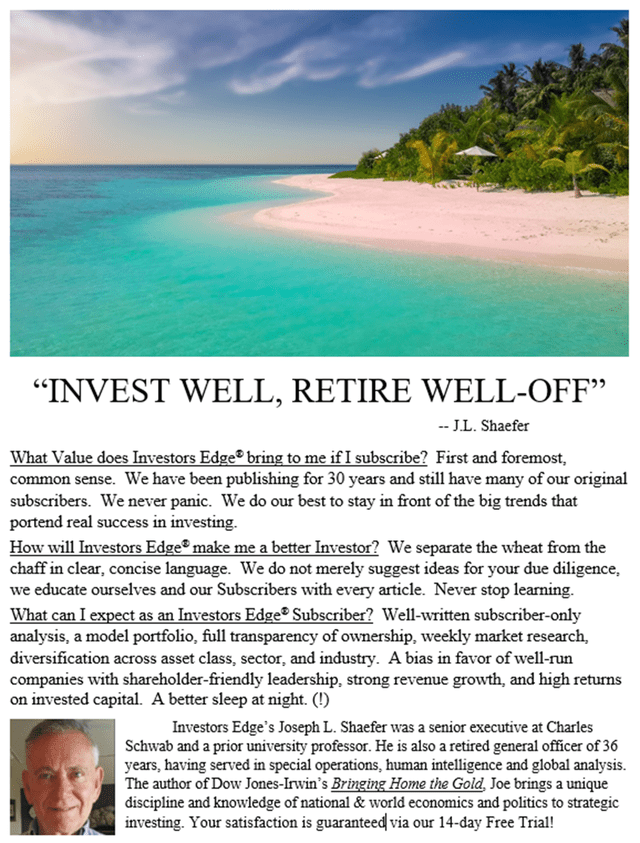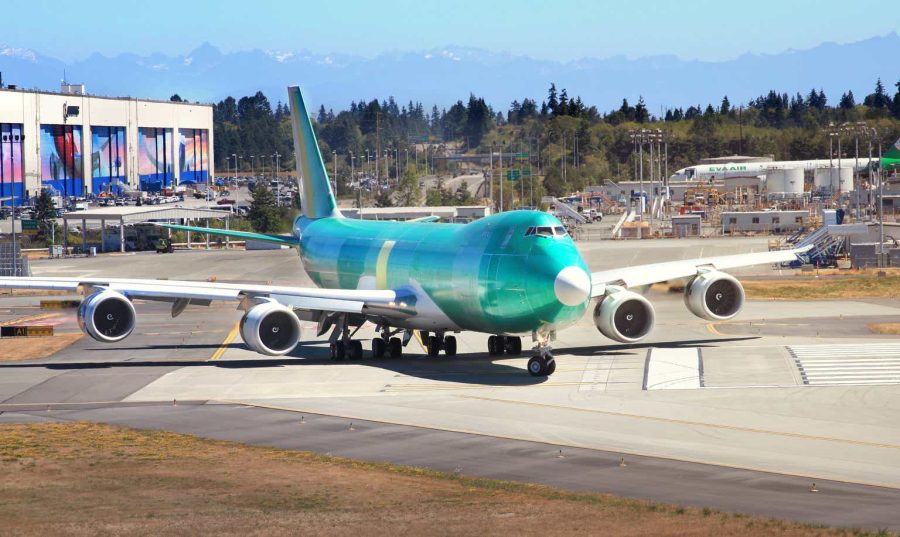Summary:
- Prior management was sensitive to the price of the shares and downplayed serious problems.
- But a deeper analysis was available by a study of competitors, FAA findings, Dept of Defense feedback, and more.
- I saved many investors the mistake of buying Boeing prematurely over the last 4 years by digging deeper into the real issues.
- If new leadership proves out, the new union agreement is ratified, and other changes are made, it might “finally” be time to buy.
“The Great One” outline205
Yes, if you believe the news from here on will be good and bad in equal measure, and you are patient enough to wait months or years to see the turn.
However, many have bought over the past four years or so, unconcerned about Boeing’s (NYSE:BA) US Department of Defense (DoD) problems and the Federal Aviation Administration (FAA) regulations and punishments yet to be determined.
Others bought because they only viewed the massive backlog of orders for new commercial aircraft and ignored the above issues.
I did not buy. Since 2000, I have analyzed and written about the real situation at Boeing and the likely follow-on effects for the share price.
Over 36 years of Active, Guard, and Reserve, among many other aircraft from other aerospace contractors, I jumped (parachuted) from the Boeing CH-53E Super Stallion heavy-lift helicopter, and I was transported/deployed many times on the Boeing C-17 Globemaster. I am also familiar with Boeing’s MH-47 variation of the Chinook. On another flight, I even had the honor of working the boom on a Boeing KC-135. (Poorly, I might add, but it was my first attempt. Luckily, the F-16 pilot beneath me had plenty of fuel and a good sense of humor…)
Friends of mine have piloted the Boeing F-15 Strike Eagle and the Boeing F/A-18 Super Hornet. In all cases, we believed these to be exceptional aircraft.
I also have a million plus air miles as a flyer for my business and for pleasure, mostly in older Boeing airplanes that I trusted with my life.
That was then.
In recent years, Boeing has become less of an aircraft design, engineering, and manufacturing company with a premier reputation. Instead, it was run by mostly offsite CEOs and boards more interested in financial engineering than aerospace engineering.
Most people think of Boeing as a commercial aircraft company. It is. But a good chunk of its earnings come from defense and space activities. (Albeit at a declining rate because of the “issues” it has had with delivering a quality product to DoD and NASA.)
Why is this particularly important right now?
Just last month, in a ceremony at Travis Air Force Base (AFB) the United States Air Force sent its last KC-10 to the Boneyard at Davis-Monthan Air Force Base. (These aircraft might be resuscitated in the event of major combat.) That means almost no more tankers of the KC-135 or KC-10 configuration. The United States’ essential refueling capability now depends on the Boeing KC-46 Pegasus next-generation aerial refueling tanker, an airplane that has suffered major problems and huge cost overruns since its inception.
Recent History – The Current Decade
I follow events closely in the aerospace business. My first warning to SA readers was when I expressed my opinion about Boeing’s share price on January 27, 2000. I was not convinced by Boeing’s public response to the deaths that resulted from the two 737MAX MCAS problems was pilot error. I advised readers to SELL. That analysis was titled Why I Won’t Be Buying Boeing and is available here. BA’s share price was then $316. It climbed for the next two weeks until US and international airline pilots questioned the “pilot error” response.
There is never just one cockroach in the kitchen.
My next analysis was titled Boeing Vs. Raytheon: Which One Has The Right Stuff? I chose Raytheon (RTX). RTX has since doubled. BA is below its then price. You can see my logic here.
By the time of my next analysis, everyone had learned the real truth about the 737MAX problems. That analysis was titled Darn It, I Still Can’t Bring Myself To Buy Boeing. The share price had declined to $222 and many investors jumped in.
My primary concern by then was not just about the 737MAX but about the 777 grounding that resulted from a frightening engine failure on a United flight out of Denver that spit aircraft parts onto a suburb below, as well as the FAA-ordered inspections of more than 200 of the 787s due to torn decompression panels in cargo holds that the FAA said posed a risk to the aircraft if a fire were to break out in the holds.
Also, the newest Boeing passenger jet, the 777X, was postponed because of problems with the GE engines. (At the time I wrote my analysis, Boeing postponed the delivery of the first 777X until late 2023. It still has not been delivered. Recent problems during flight testing grounded the four prototypes. Boeing is now projecting it will begin production in 2026.
My first 2024 Seeking Alpha analysis, in January, also included a SELL rating. Boeing shares were priced at $213. The title of my piece was Boeing: 1, 2, 3 Strikes, You’re Out. You can find it here. It gave me no pleasure to again advise a sale of the shares of this once-well-managed company.
I have taken a special interest in the woes of the KC-46. Without air-to-air refueling the US has no forward air combat projection. All those Air Force planes and all those sitting on the decks of Navy carriers are worthless unless they can get to the target and back.
As of today, there are still Category 1 problems that are being fixed as we speak. It costs Boeing revenue every time the Air Force says that the aircraft as delivered does not fulfill the specs as agreed upon at the time of the contract.
For a current review complete with seven links to specific incidents and decisions by regulators, I just two months ago provided an in-depth overview of the current situation. It is titled Boeing: How the Mighty Have Fallen and can be read here.
Moving Forward
Boeing has a well-deserved history of building fine airplanes. They did so for decades – until recently. In the current decade, management at Boeing stressed making the securities analysts happy as much as they did making quality airplanes. There are still current issues with the 737, the 777X, the 787, the KC-46, and the Starliner.
Boeing is talking about shopping their space program to a competitor to save money and focus more precisely on commercial and defense aviation. I am sorry to hear this. Boeing was a key player in building the massive Saturn V rockets. These are the rockets that launched the Apollo program and sent Americans to their moon landing.
Boeing acquired Rockwell International and with it a piece of the space shuttle program. I have had the honor of being at Edwards AFB to see one of the 41 shuttles that returned there from space. The electricity of the waiting crowd cannot be overstated. It was a wonderful, and proud, moment.
Starliner has had its problems but I do not see these as unfixable. Besides, the Space Launch System (SLS) rocket launched the Artemis mission in preparation of the next astronaut moon landing without a problem.
There is good news, sadly missing until just the last few weeks.
It seems Boeing finally might have a hands-on CEO who cares about quality engineering and has the CV to prove it. Kelly Ortberg comes from an engineering background, which is precisely what Boeing has needed and had once upon a time.
He began his career as an engineer at Texas Instruments (TXN) and then joined Rockwell Collins four years later. He rose through the ranks and ultimately became the CEO.
He was in command during the acquisition of Rockwell Collins by the company that became Raytheon (RTX). Ortberg stayed on to lead the merger of Rockwell Collins and shortly thereafter became the CEO of one of the three primary divisions of RTX, Collins Aerospace. He was also the chair of the board of governors of the Aerospace Industries Association. Kelly knows aerospace.
Another good sign. Whereas the previous CEO, David Calhoun, lived on the Gold Coast of Chicago, Mr. Ortberg lived in West Palm Beach – but the moment he accepted the CEO position he decided to move to Seattle where the airplane rubber meets the road/runway.
Kelly Ortberg has his work cut out for him. Boeing has $58 million in debt. He just took the difficult step of raising more cash. The recent offering of shares sold 112.5 million shares of common stock at a public offering price of $143.00 per share. This raised about $16 billion. Boeing also sold $5 billion in depositary shares, each representing a 1/20th interest in a newly issued Series A Mandatory Convertible Preferred Stock, at a public offering price of $50.00 per depositary share. This part of the offering raised almost $5 billion. That gives the company breathing room – but it also dilutes current shareholders’ “piece of the pie” to a rather smaller piece of the pie.
I read some analyses today in which the analysts say that Boeing has declined. Therefore it is priced to buy. I cannot imagine what metrics they are using. The company has no P/E ratio to measure; it has no earnings. The company has an “okay” trailing twelve months EV/Sales ratio and Price/Sales ratio, though both are backward-looking. All other metrics of value are missing!
The commercial airplanes side of the business saw a loss of about $4 billion this last quarter. The defense business lost $2.4 billion, mostly because of charges on the KC-46 program.
There is an immediate ray of hope for at least a short-term bump in the price of BA shares. The striking 33,000 machinists’ union members vote Monday on the latest deal offered by Boeing. I cannot imagine Boeing workers will turn this one down:
The average yearly machinist pay at the end of the four-year contract will be $119,309. They will enjoy a 38% wage increase spread over four years, an incentive pay plan with a guaranteed minimum annual payout of 4%, an increased company 401(K) match, and a one-time “signing bonus” of $12,000 cash!
This agreement carries the strong recommendation of the union bosses. They stated in their communication to striking workers, “In every negotiation and strike, there is a point where we have extracted everything that we can in bargaining and by withholding our labor. We are at that point now and risk a regressive or lesser offer in the future.”
With all that has gone wrong in recent times, am I still suggesting a SELL recommendation on Boeing?
No.
I believe we have finally identified the biggest issues. That is the first step to solving them. The next step is the will of leadership and those who build the airplanes to take decisive action. We are very close to being there.
I think HOLD is a meaningless decision in this case. If you just bought shares on the recent company sale of new shares at $143, this might be a very good HOLD. If you buy it today, it might be a good HOLD. If you bought it at $300 or $250 in a taxable account, and you have other profits that will bump you into a higher bracket, by all means, SELL and buy back 31 days later if you like.
But for me to say HOLD as a blanket recommendation without knowing your entry price, capacity for risk, or anything else about you would be spurious and unprofessional.
Finally, is Boeing worth a BUY recommendation based upon…
* a leader willing to transplant his family and do what it takes to instill a new (old!) culture at Boeing,
* a hard look at the current board, where a clean sweep may be the smartest action,
* the likelihood of a return to work by 33,000 now motivated employees,
* a changed work environment that stresses safety on the manufacturing floor, pride in one’s work, and superior engineering,
*and a promise to the airlines and the DoD of a return to the leadership and manufacturing excellence of previous times?
YES. I expect we will see a good news bump from a (costly) strike settlement that will probably then settle back down.
I am now prepared to BUY shares in Boeing. After maintaining a SELL on Boeing for 4 years, in which the shares fell more than 50%, I believe BA finally has new leadership, a newly motivated workforce, and a clear understanding of what must be done.
I look forward to the day when I can say Boeing’s myriad troubles are behind them. It can’t happen too soon for this once-great American company.
Analyst
Analyst’s Disclosure: I/we have no stock, option or similar derivative position in any of the companies mentioned, but may initiate a beneficial Short position through short-selling of the stock, or purchase of put options or similar derivatives in BA over the next 72 hours. I wrote this article myself, and it expresses my own opinions. I am not receiving compensation for it (other than from Seeking Alpha). I have no business relationship with any company whose stock is mentioned in this article.
Unless you are a client of my portfolio management firm, Stanford Wealth Management, I do not know your personal financial situation. Therefore, I offer my opinions above for your due diligence, not as advice to buy or sell specific securities.
It is increasingly difficult and time-consuming to manage a portfolio in these turbulent times. If you agree, you are welcome to discuss your goals and priorities with our firm: inquire@stanfordwealth.com."
Seeking Alpha’s Disclosure: Past performance is no guarantee of future results. No recommendation or advice is being given as to whether any investment is suitable for a particular investor. Any views or opinions expressed above may not reflect those of Seeking Alpha as a whole. Seeking Alpha is not a licensed securities dealer, broker or US investment adviser or investment bank. Our analysts are third party authors that include both professional investors and individual investors who may not be licensed or certified by any institute or regulatory body.

